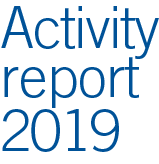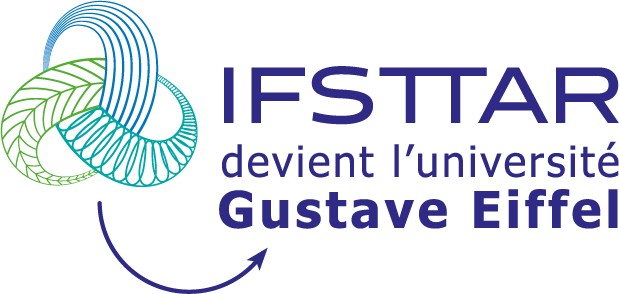Reference

Efficient transport and safe travel
Mobility and safety issues, which are central to IFSTTAR's research, are addressed by Theme 1, whose aim is to achieve "efficient transport and safe travel". Mobility systems are crucial for the functioning of modern societies, and they must become more energy efficient, more reliable and resilient while integrating technologically innovative components. Researchers must also make the effort to understand the impacts of the changes that affect transport systems, in particular their automation
Three of IFSTTAR’s five Departments are engaged in work on this theme:
- COSYS (Components and Systems) is a multidisciplinary department at the frontier between the physical and digital worlds, with a strong experimental component. Its mission is to develop the concepts and tools needed to add to fundamental knowledge, methods, technologies and operational systems for a new type of intelligence for mobility, infrastructure networks and large urban systems. COSYS thus aims to improve their efficiency, safety, carbon footprint and environmental and health impacts.
- An aspect favoured by the TS2 (Transport, Health, Safety) department, which is both unifying and identity-building, relates to the safety of land travel, especially by road. TS2 is a multidisciplinary department, bringing together disciplines from the human and social sciences, science and technology, as well as the life sciences. Research is carried out in five areas: driving automation, new research questions related to the changes in mobility, the links between mobility and health, human modelling, and the design, development and use of databases.
- The AME (Planning Mobilities and Environment) Department, which is also multidisciplinary, brings together the human and social sciences and technology. Its research focuses on the mobility of people and the transport of goods and their interrelationship with the natural and built environments. It is particularly interested in analysing the interactions between innovations (digital technology, autonomous vehicles) and mobility practices, as well as peri-urban areas. The department's research allows us to understand mobility practices, to carry out forward studies on mobility, and to assess its social, economic and environmental impacts in order to improve technical systems.
IFSTTAR's researchers thus contribute to the development of energy-efficient, safe and well thought-out proposals to meet society's expectations by helping to design reliable transport systems suitable for all people and all goods. IFSTTAR's team teams pursue three objectives: improving the reliability of transport, enhancing travel safety and ergonomics, and promoting multimodal, intelligent, clean and freely-flowing transport.

